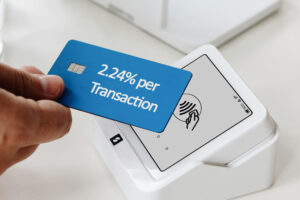A credit limit increase can feel like a reward — more spending power, lower credit utilization, and sometimes even a bump in your credit score. But before you ask your card issuer for a higher limit, it’s important to understand how it works and what the potential impacts are.
Here’s what you need to know.
Why Request a Credit Limit Increase?
There are a few good reasons to ask for a higher limit:
- You’ve had the card for 6+ months and used it responsibly
- Your income has increased
- You’re trying to improve your credit score by lowering your utilization ratio
- You want more flexibility for larger purchases or emergencies
- You’re planning a big trip or event and want more cushion
That said, you should never request a higher limit just to spend more — that defeats the purpose.
How to Ask for a Credit Limit Increase
You usually have three options:
1. Online Request
Log into your credit card account. Many issuers have an option under “Card Services” or “Account Settings” to request an increase.
2. Call Customer Service
Speak with a representative and explain why you’re requesting more credit. Be prepared to share:
- Your current income
- Employment status
- Monthly housing costs
- Any other cards or debt you hold
3. Automatic Review
Some issuers review your account automatically and increase your limit without you asking — especially after six months to a year of good use.
Will It Affect Your Credit Score?
It depends. Some issuers use a soft credit check, which doesn’t impact your score. Others use a hard inquiry, which can temporarily lower your score by a few points.
Always ask your issuer first whether the request will trigger a hard pull.
Pros of Increasing Your Credit Limit
✅ Improves Credit Utilization Ratio
If you have a $500 balance on a $1,000 limit (50% utilization) and get bumped to $2,000, your ratio drops to 25% — and that’s good for your score.
✅ Better for Emergencies
More available credit means more flexibility if you ever face sudden expenses.
✅ Improves Credit Score Over Time
As long as you keep your balance low and pay on time, the increase can help boost your score.
Cons or Risks to Consider
❌ Hard Inquiry (Temporary Score Drop)
If your issuer pulls your credit, your score might dip 5–10 points short-term.
❌ Temptation to Overspend
A higher limit can lead to more spending if you’re not disciplined — and more debt.
❌ Possible Denial
If your income is low or you’ve had late payments, you could be denied — and a hard inquiry still might be recorded.
Tips for a Successful Request
- Wait at least 6 months after opening the card
- Pay on time every month
- Keep credit utilization low (ideally under 30%)
- Don’t request an increase during financial hardship or after a recent missed payment
- Mention any income increases or job stability when asked
When to Avoid Asking
- Your credit score recently dropped
- You just opened a new credit card or loan
- You missed payments in the last 6 months
- You’re applying for a mortgage or auto loan soon (and don’t want new hard inquiries)
Asking for a credit limit increase can be a smart move — as long as you’re using credit responsibly. Think of it as a tool, not a license to spend.




